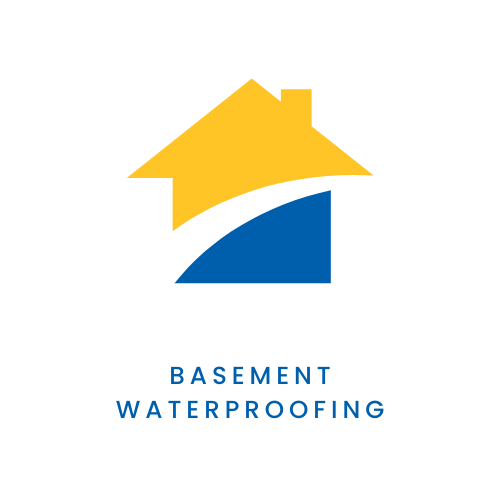FREQUENTLY ASKED QUESTIONS
-
What is basement waterproofing, and why is it important?
Basement waterproofing is the process of preventing water intrusion and moisture buildup in basements or below-ground areas of a building. It's crucial because a wet or damp basement can lead to various issues such as mold growth, structural damage, and reduced indoor air quality. Waterproofing helps maintain a dry, safe, and healthy environment in your home or building.
-
How do I know if my basement needs waterproofing?
There are several signs that indicate your basement may need waterproofing, including water stains on walls or floors, musty odors, visible mold or mildew growth, peeling paint or wallpaper, and water seepage during heavy rain or snowmelt. If you notice any of these signs, it's advisable to have a professional inspection to assess the extent of the water damage and determine if waterproofing is necessary.
-
What are the signs of water damage in a basement?
Common signs of water damage in a basement include damp or wet walls and floors, water stains or discoloration, peeling paint or wallpaper, musty odors, visible mold or mildew growth, and efflorescence (white, chalky residue on walls). Additionally, water seepage, puddles, or standing water after rainfall or snowmelt are clear indicators of water intrusion.
-
What are the different methods of basement waterproofing?
Basement waterproofing methods can vary depending on the specific needs of your property. Common techniques include exterior waterproofing (such as foundation coatings, drainage systems, and sealants), interior waterproofing (using sealants, coatings, and drainage systems inside the basement), and the installation of sump pumps and French drains to redirect water away from the foundation.
-
How long does basement waterproofing typically take?
The duration of basement waterproofing projects can vary based on factors such as the size of the basement, the extent of water damage, the chosen waterproofing method, and weather conditions. On average, a typical basement waterproofing project may take anywhere from a few days to a couple of weeks to complete.
-
What factors can affect the cost of basement waterproofing?
The cost of basement waterproofing depends on several factors, including the size of the basement, the severity of water damage, the chosen waterproofing method, the accessibility of the basement, labor costs in your area, and any additional repairs or improvements needed. It's best to get a professional assessment and quote to determine the exact cost for your specific situation.
-
Will basement waterproofing disrupt my daily life or routine?
The extent of disruption during basement waterproofing depends on the chosen method and the condition of your basement. In some cases, interior waterproofing methods may cause minimal disruption, while exterior waterproofing or extensive repairs may require more time and temporary adjustments to your daily routine. A reputable waterproofing contractor will work efficiently to minimize inconvenience and ensure a smooth process.
-
How long does basement waterproofing last?
The longevity of basement waterproofing can vary depending on factors such as the quality of materials used, the effectiveness of the waterproofing method, maintenance practices, and environmental conditions. A well-installed and maintained waterproofing system can last for many years, providing lasting protection against water damage and moisture intrusion.
-
Are there any warranties or guarantees for your waterproofing services?
Many reputable waterproofing contractors offer warranties or guarantees for their services and products. These warranties typically cover workmanship and materials, ensuring that any issues or defects arising from the waterproofing work will be addressed and resolved within the specified warranty period. It's important to discuss warranty details with your contractor before starting the waterproofing project.
-
What maintenance is required after basement waterproofing?
After basement waterproofing, it's important to follow recommended maintenance practices to ensure the longevity and effectiveness of the waterproofing system. This may include regular inspections for any signs of water intrusion, keeping gutters and downspouts clean and functional, maintaining proper grading around the foundation, and addressing any plumbing or drainage issues promptly. Regular maintenance helps prevent potential water damage and ensures the continued protection of your basement.
-
Is basement waterproofing a DIY project, or should I hire a professional contractor?
Basement waterproofing is a complex and critical task that often requires specialized knowledge, skills, and equipment. While some minor waterproofing tasks may be suitable for DIY enthusiasts, such as applying sealants or patching small cracks, more extensive waterproofing projects and structural repairs should be handled by experienced professionals. Hiring a reputable waterproofing contractor ensures that the work is done correctly and effectively, providing long-lasting protection for your basement against water damage and moisture intrusion.
Visit Us
Email Us
Call Us

Aqua House Basement Waterproofing
At Aqua House Basement Waterproofing, we're a family-owned business with over 25 years of experience in the industry. Our passion for serving customers and our dedication to mastering the art of basement waterproofing have driven us to become leaders in our field. With thousands of homes under our belt, we take pride in offering top-notch services and utilizing the latest techniques and materials to ensure the utmost quality for every project.
Navigation
Services
Exterior Waterproofing
Interior Waterproofing
Foundation Repair
Sump Pump Installation
French Drain Installation
Vapor Barrier Installation
Dehumidification Services
Mold Remediation
Water Damage Restoration
Moisture Control
Crawl Space Encapsulation
Drainage System Installation
Crack Repair
Basement Finishing
Website Designed by Flynnovate Web Designs. To have a website built go to www.flynnovatewebservice.com
| Powered by Snapps
